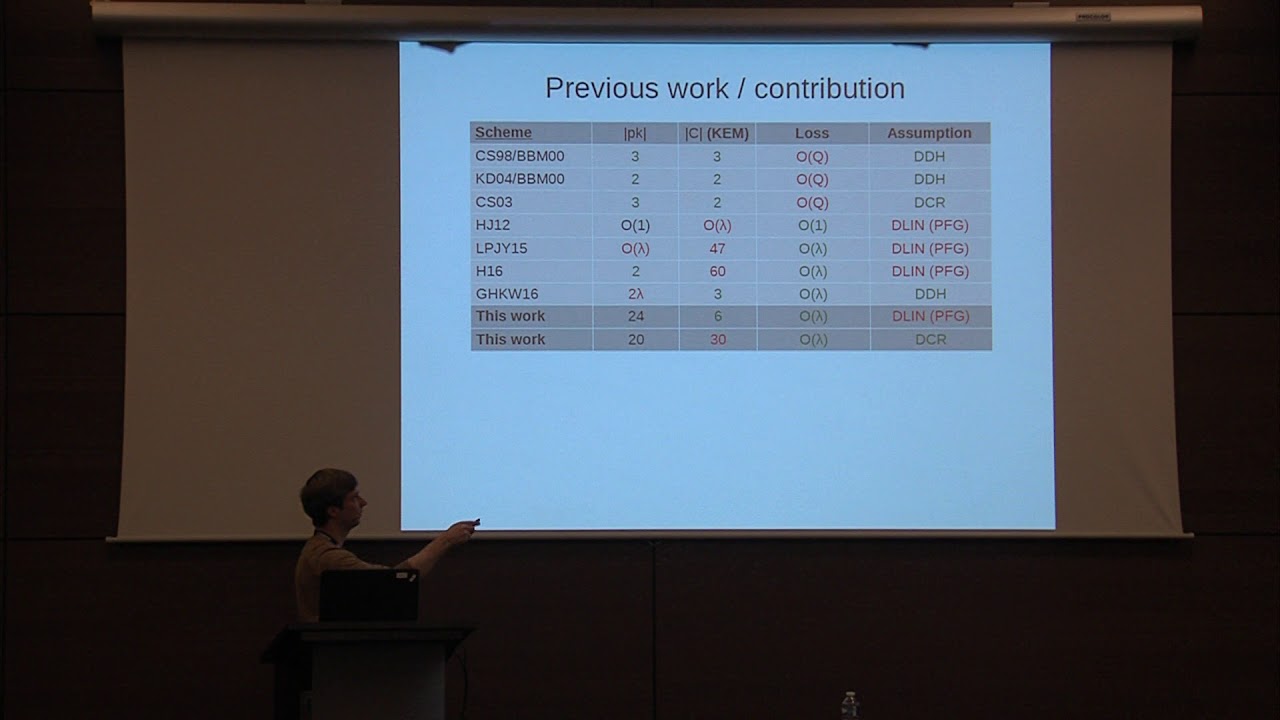Welcome to the resource topic for 2016/373
Title:
Adaptive partitioning
Authors: Dennis Hofheinz
Abstract:We present a new strategy for partitioning proofs, and use it to obtain new tightly secure encryption schemes. Specifically, we provide the following two conceptual contributions: - A new strategy for tight security reductions that leads to compact public keys and ciphertexts. - A relaxed definition of non-interactive proof systems for non-linear (``OR-type’') languages. Our definition is strong enough to act as a central tool in our new strategy to obtain tight security, and is achievable both in pairing-friendly and DCR groups. We apply these concepts in a generic construction of a tightly secure public-key encryption scheme. When instantiated in different concrete settings, we obtain the following: - A public-key encryption scheme whose chosen-ciphertext security can be tightly reduced to the DLIN assumption in a pairing-friendly group. Ciphertexts, public keys, and system parameters contain 6, 24, and 2 group elements, respectively. This improves heavily upon a recent scheme of Gay et al. (Eurocrypt 2016) in terms of public key size, at the cost of using a symmetric pairing. - The first public-key encryption scheme that is tightly chosen-ciphertext secure under the DCR assumption. While the scheme is not very practical (ciphertexts carry 29 group elements), it enjoys constant-size parameters, public keys, and ciphertexts.
ePrint: https://eprint.iacr.org/2016/373
Talk: https://www.youtube.com/watch?v=VgqZMJFnMn0
See all topics related to this paper.
Feel free to post resources that are related to this paper below.
Example resources include: implementations, explanation materials, talks, slides, links to previous discussions on other websites.
For more information, see the rules for Resource Topics .
